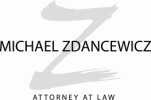 Reverse mortgages first became popular in the 1990s. They may regain their popularity as Baby Boomers reach retirement and seek out sources of ready cash to supplement their incomes.
Reverse mortgages first became popular in the 1990s. They may regain their popularity as Baby Boomers reach retirement and seek out sources of ready cash to supplement their incomes.
In a reverse mortgage, a borrower has access to a line of credit based on the amount of the principal of the loan as well as on the unpaid interest of that loan. Borrowers can access money discretionally; however, once the maximum allowed for the line of credit has been reached, monthly payments are required and the unpaid amount is recapitalized and deducted from the total amount of available credit.
A lien on a reverse mortgaged property is often secured by a home or other real property, just as it is with a conventional mortgage. If a borrower cannot make regular payments, the mortgage lender may proceed to legal remedies such as foreclosure.
Occasionally, property increases in value after a reverse mortgage is issued, and second or even third reverse mortgages may subsequently be taken out. However, since the balance due in a reverse mortgage tends to increase over time, most lenders prefer not to make such loans or take such subordinated positions.
If you would like more information about reverse mortgages, creditors’ rights, or if you need assistance from an attorney, contact Windtberg & Zdancewicz to schedule an initial consultation.
The attorneys at Windtberg & Zdancewicz, PLC, provide clients with experienced legal representation in all collection matters. We are experienced in creditor’s rights including garnishments, charging orders, attachment, property execution, trustee’s sales, foreclosures, judgments, judgment collection, domestication of foreign judgments, and creditor’s issues in bankruptcy cases. If you need assistance with your collection matters, please contact us at (480) 584-5660.
